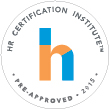Meetings are seemingly unavoidable for organizations, and many times team members feel that their whole day is filled with meetings, leaving little time to perform their “real” jobs. But this does not have to be the case. With teambuilding efforts and strategies, leaders can conduct effective and productive meetings that serve an important purpose.
To run more productive and effective meetings, consider the advice offered from the following sources referenced in this article:
- The Key to Making Meetings More Productive;
- The Power of Short, Small Meetings;
- 13 Types of Meeting Attendees You Don’t Want to Be;
- Meetings: Decide what matters and who cares; and,
- 7 Tips for Leading Meetings More Effectively.
With effective teambuilding strategies, leaders can run more productive and relevant meetings, saving the company money and employees time for more important tasks.
Assign start and end times – and stick to them! According to The Key to Making Meetings More Productive, starting and ending on time are part of the larger issue of setting standards and norms for meetings. Attendees need to understand what to expect from meetings, and established start and end times help everyone to better plan and schedule their tasks and time.
Keep them short. Meetings should be short and sweet, says The Power of Short, Small Meetings. By scheduling short 10- or 15-minute meetings, attendees have a better focus for the important aspects that need to be addressed. It is also advised to keep meetings small, and invite only necessary individuals. Attendees should be people who can make decisions, and too many attendees will lead to unnecessary discussion and encumbered decision-making.
Check phones at the door. One of the undesirable attendees of any meeting is someone who is constantly distracted by their smartphone, says 13 Types of Meeting Attendees You Don’t Want to Be. One way to deter attendees from constantly looking at their phones or trying to multitask is by removing the distraction altogether and banning them from the conference room.
Create an agenda. According to Meetings: Decide what matters and who cares, meetings should have a clear focus, and attendees should deal with big picture items, rather than day-to-day minutia. Some important items that should make the cut include discussing progress, making decisions, providing input and discussing strategic topics.
Start conversations the day before. Before everyone is heading into the meeting, start conversations with attendees the day before the scheduled meeting, says 7 Tips for Leading Meetings More Effectively. This gives attendees the chance to think about their input for the next day. By opening the dialogue early, you are also giving your team members the opportunity to talk with you about their issues that may be solved before anyone even steps foot into the meeting, saving time.
Build effective teams. Inviting the right people to meetings is another important strategy for effective meetings. For example, could a subcommittee open up time for others and solve the issue of wasting time? In order to know if this strategy would be effective, leaders should understand how to build effective teams based on the six principles of trust, interdependence, genuineness, empathy, risk and success. The 6 Principles the Build High Performance Teams Self-Study Leadership Training program teaches leaders how they can improve employee accountability and engagement through a flexible online study program that is available 24/7.
Meetings are an important tool for leaders, but they can sometimes overwhelm team members and detract from productivity. With renewed focus and outside training, leaders can put teambuilding efforts into practice to run effective meetings that have an important purpose that everyone understands.
Copyright TIGERS Success Series, Inc. by Dianne Crampton
About TIGERS Success Series, Inc.

Based on a cooperative and collaborative team based system, TIGERS licenses HRD professionals and other consultants in the use of TIGERS proprietary team and leadership development resources. These resources include catalytic team building activities, team building facilitation methods, strategic problem solving methods and a 360 Team Climate Survey that measures the quality of trust, interdependence, genuineness, empathy, risk and success on teams for workforce development and change management purposes. For more information Contact Us.
The 15 HRCI recertification credits awarded for the 6 Principles Leadership Clinic is not an HRCI endorsement of the program but qualifies for 2015 recertification credit.

